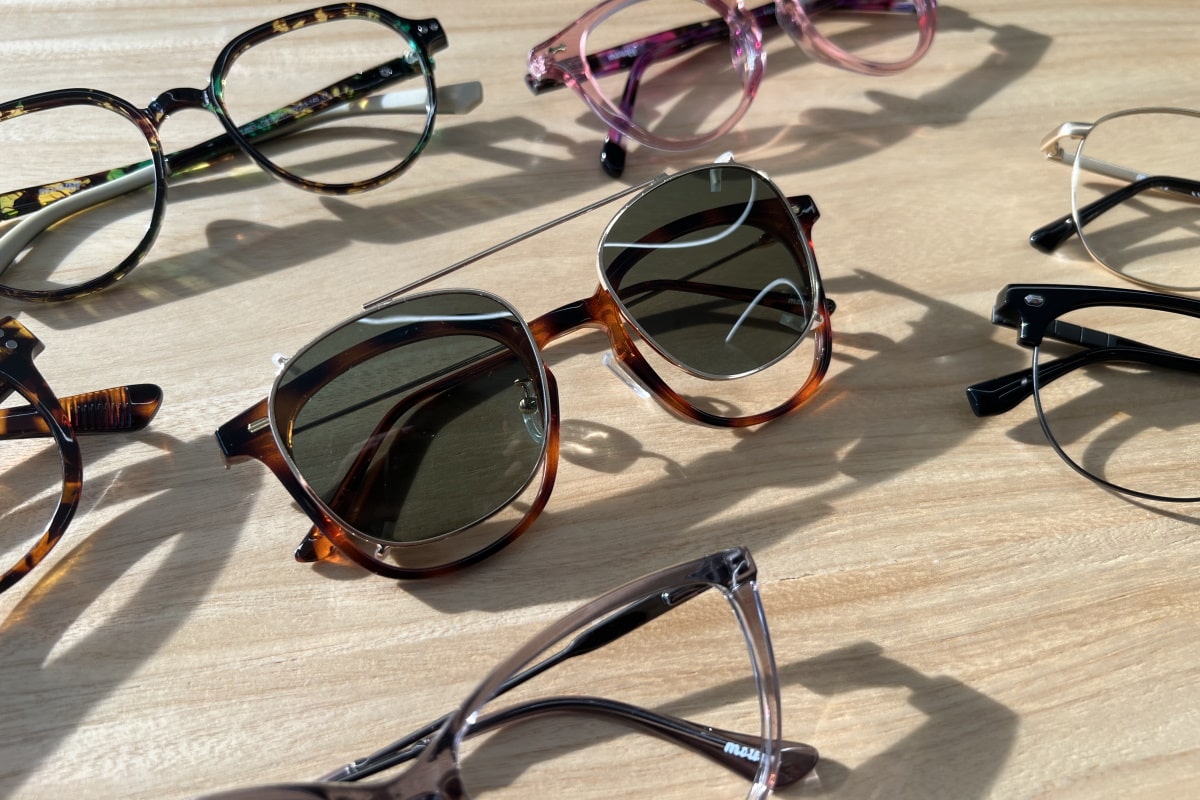How Does Anxiety Affect Your Vision?
Anxiety is more than just a mood killer – it can profoundly impact a crucial aspect of our lives: our vision. This mental health condition can lead to or aggravate vision problems when left untreated.
This article will explore how this mental health issue affects our eyes and how proper treatment will benefit more than just our emotional well-being.
What is anxiety?
Anxiety is a mental health condition that can lead to persistent feelings of worry, fear, or unease. According to the American Psychological Association,[1] anxiety is defined as “an emotion characterized by feelings of tension, worried thoughts, and physical changes like increased blood pressure.”
In other words, anxiety is a response to stress that can trigger various physical and emotional symptoms. Some common emotional symptoms of anxiety include excessive worry, irritability, or difficulty concentrating. Physical symptoms include:
- Muscle tension
- Sweating
- Trembling
- Shortness of breath
Can anxiety affect our vision?
Anxiety can notably impact the eyes through physical symptoms that can affect vision.
One common symptom of anxiety is blurry vision, which occurs due to changes in blood flow or muscle tension in the eyes. Light sensitivity is another symptom that can cause discomfort or pain in bright or fluorescent light.
Stress-induced muscle tension or fatigue can also lead to eye twitching. In addition, anxiety can aggravate pre-existing eye conditions, such as dry eye syndrome or uveitis.
When the body is under stress, the immune system can become overactive. This leads to inflammation throughout the body, including in the eyes. At the same time, inflammation is a natural response to infection or injury.
Chronic inflammation [2] in the eyes can cause damage to the tissues and cells intended to protect them. Left untreated, it can also damage blood vessels in the eyes, leading to vision loss or blindness.
Anxiety & glaucoma
Glaucoma [3] is an eye condition that harms the nerve responsible for transmitting visual information from the eye to the brain. It can develop slowly and without noticeable symptoms, making it a leading cause of blindness worldwide.
Symptoms of glaucoma can include blurry vision, loss of peripheral vision, or seeing halos around lights. It can cause high pressure inside the eye, damaging the optic nerve over time.
Anxiety can lead to increased eye pressure, increasing the risk of developing glaucoma [4] or worsening existing cases. When a person experiences stress, their body may release hormones such as cortisol and adrenaline. This can lead to higher blood pressure and heart rate.
Increased blood pressure can lead to increased eye pressure, which can cause damage to the optic nerve in people with glaucoma.
Treatment for glaucoma depends on the type and severity of the condition. For some people, eye drops can help reduce eye pressure and prevent further damage to the optic nerve. Surgery or laser therapy may be needed in other cases to improve fluid drainage and reduce eye pressure.
Individuals with glaucoma need to work with an eye doctor to develop a treatment plan that meets their needs and addresses the condition’s underlying causes.
Anxiety & diabetes
While anxiety does not directly cause diabetes, both conditions can significantly impact eye health. Diabetes is a long-term health condition that affects how your body uses sugar, leading to high blood sugar levels. High blood sugar can potentially damage blood vessels in the eyes, leading to diabetic retinopathy.
Diabetic retinopathy can cause blurry vision, floaters, or even vision loss if left untreated. Anxiety can aggravate symptoms of diabetes by causing fluctuations in blood sugar levels. Stress hormones like cortisol and adrenaline can increase blood sugar levels in the body, which can worsen the symptoms of diabetes.
Anxiety & blindness
Although anxiety can affect vision, it is unusual for it to result in complete blindness. Nevertheless, in rare cases, severe stress can cause damage to the optic nerve, known as optic neuropathy, which can lead to partial or complete loss of vision.
Optic neuropathy [5] can occur due to various factors, including physical trauma, infections, inflammation, or exposure to toxins. While rare, optic neuropathy can develop in individuals with severe anxiety, particularly those who experience panic attacks, chronic stress, or pre-existing eye conditions.
Ways to manage & reduce anxiety
1. Mental therapy or counseling
Talking to a mental health professional, such as a therapist or counselor, can help individuals manage anxiety and develop coping strategies.
Therapists can provide a safe space to explore anxiety triggers and develop effective ways to manage anxiety symptoms, such as cognitive-behavioral therapy (CBT) or exposure therapy. Cognitive-behavioral therapy (CBT) is a form of psychotherapy that changes negative thought patterns and behaviors. In contrast, exposure therapy involves gradual exposure to anxiety-provoking stimuli to reduce fear and anxiety.
Through therapy, individuals can learn skills to manage anxiety. This includes identifying and reframing negative thought patterns, relaxation techniques, and self-care.
2. Lifestyle changes to minimize stress
Making lifestyle changes can also help reduce anxiety symptoms. Some examples include regular exercise, proper breathing techniques, and meditation.
Exercise can help reduce tension in the body and release endorphins, which are natural mood boosters. Proper breathing techniques, such as deep breathing or diaphragmatic breathing, can help slow down the heart rate and reduce anxiety symptoms.
Meditation and mindfulness techniques can also help individuals focus on the present moment and reduce the impact of anxious thoughts.
3. Medication
In some cases, medication can manage anxiety symptoms. Antidepressants and anti-anxiety medications, such as selective serotonin reuptake inhibitors (SSRIs) and benzodiazepines, can effectively manage anxiety symptoms.
It’s important to take these medications under the guidance of a healthcare provider since they can have side effects and interact with other medicines.
Some bonus ways to keep your eyes healthy
1. Eat nutrient-rich foods for healthy eyes
A healthy diet is crucial for keeping your eyes healthy. Eating foods that contain vitamins A, C, and E, omega-3 fatty acids, and zinc can help lower the chance of developing eye diseases such as cataracts and age-related macular degeneration (AMD). Some foods that are great for your eyes are leafy greens, citrus fruits, fatty fish, eggs, and nuts.
2. Avoid smoking
Smoking has been linked to a higher risk of several eye conditions, including age-related macular degeneration, cataracts, and optic nerve damage. The chemicals in cigarette smoke can cause damage to the blood vessels in the eye, reducing blood flow and increasing the risk of eye disease. It can also lead to dry eye syndrome, which can cause discomfort, irritation, and blurry vision.
Individuals can reduce their risk of developing these severe eye conditions by quitting smoking and improving their overall health.
3. Take frequent breaks from blue light-emitting screens
Frequent exposure to blue light-emitting screens, such as those on smartphones, tablets, and computers, can cause eye strain and fatigue. Taking frequent breaks and looking away from the screen every 20 minutes can help reduce eye strain and fatigue.
Plus, reducing screen time before bed improves sleep quality and reduces the risk of eye strain. If you find yourself needing to use screens heavily during the day, consider looking into blue light blocking lenses to help protect your sleep patterns.
4. Get sufficient sleep
Lack of sleep can cause eye fatigue, dryness, and redness. In addition, sleep deprivation can aggravate symptoms of anxiety and stress.
Aside from being important for your overall health, getting sufficient rest will also keep your eyes healthy. During sleep, the eyes receive essential nutrients and hydration that are important for maintaining their health and function. It also helps to refresh the eyes and prevent eye strain, which can result in dry, irritated eyes and blurry vision.
The impact of anxiety on your eye health
It’s crucial to prioritize mental health and seek treatment for anxiety, stress, and other mental health conditions.
While mental health can be stigmatized or overlooked, it’s important to remember that mental and physical health are interconnected. Anxiety and other mental health conditions can manifest in physical symptoms, including those that affect the eyes. Individuals can reduce the risk of developing eye conditions or aggravating existing ones by managing anxiety, such as through therapy, lifestyle changes, or medication.
Additionally, proper self-care, including getting sufficient sleep and maintaining a healthy diet, can support overall mental and physical health. It is crucial to prioritize mental health when taking care of your overall well-being. This can help reduce the impact of anxiety on your eyes and overall health.
References
- “Anxiety”, American Psychological Association.
- “Eye Diseases & Conditions Eye Inflammation and Inflammatory Eye Disease”, Prevent Blindness.
- “What Is Glaucoma? Symptoms, Causes, Diagnosis, Treatment”, American Academy of Ophthalmology.
- “Glaucoma”, National Eye Institute.
- “Optic Neuropathy”, Lions Eye Institute.

Written by:
Angie Garcia





















